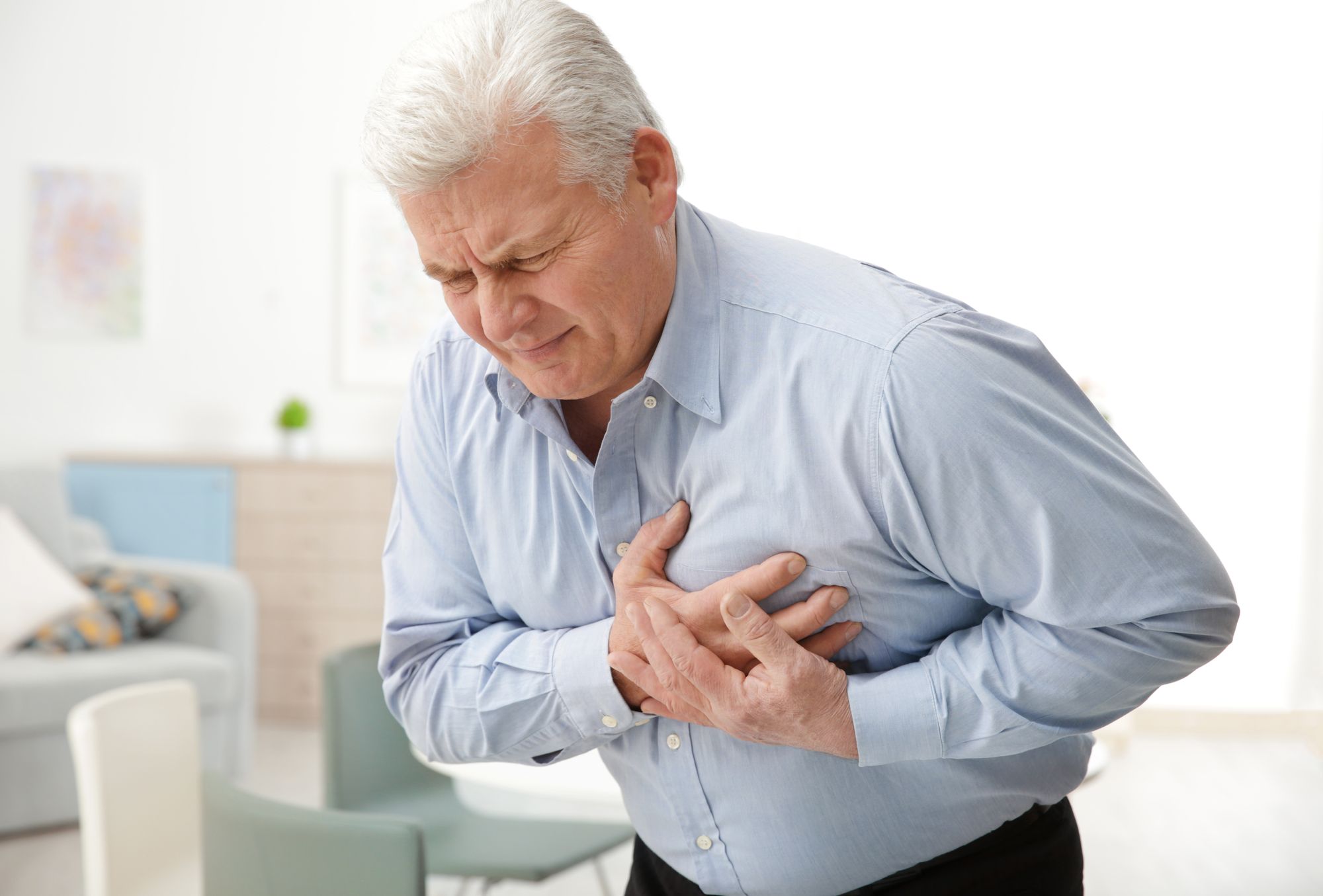Fat is a crucial component of our diet, along with protein and carbohydrates, and is necessary for proper bodily function. Essential fatty acids found in fat, which the body cannot produce on its own, are crucial for overall health. However, consuming too much fat can lead to various health problems.
Registered dietitian Jessica Jones recommends a balanced macronutrient diet that includes fats, carbohydrates, and protein. She suggests incorporating nutrient-dense sources of dietary fat such as nuts, seeds, fatty fish, and avocado into meals. These fats provide energy and help the body absorb fat-soluble vitamins.
Even healthy fats can be harmful when consumed in excess. According to the Dietary Guidelines for Americans, adults should limit their total calories from fats and oils to 20 to 35% of their daily caloric intake, with saturated fats comprising no more than 10%.
Reasons Why Your Cholesterol May Increase

Certain types of fats have been linked to increased blood cholesterol levels, which can lead to health problems. Registered dietitian Amy S. Margulies, RD, owner of The Rebellious RD, explains that saturated fats, such as those found in whole milk and red meat, should be consumed in moderation because they can raise LDL "bad" cholesterol. Trans fats, which are partially hydrogenated oils found in fried foods, pizza dough, crackers, and baked goods, can also increase low-density lipoprotein production. This type of cholesterol can accumulate on the walls of blood vessels, causing them to narrow and become rigid, which can affect blood flow to various parts of the body.
Weight Gain: How Eating Too Much Fat Can Contribute to Unwanted Pounds
Fat can be calorie-dense, with 9 calories per gram compared to 4 calories per gram for carbohydrates and protein, leading to excessive calorie intake and subsequent weight gain if an individual consumes too much fat, says Mary Wirtz, a registered dietitian nutritionist. A 2020 Chinese study linked high-fat diets with elevated body weight, body mass index, and increased risk of overweight and obesity. However, overeating carbohydrates, especially processed carbs that contain little or no fiber, can cause obesity too. The type of fat, just like the type of carbohydrate eaten, matters. A study in the journal Obesity found that weight gain was associated more strongly with the percentage of calories from animal fats, saturated, and trans fats than from total fat calories and not at all from increased intake of poly and monounsaturated fats.
The Risk of Heart Disease May Increase with Certain Types of Fat Consumption

The consumption of saturated fats and its relationship to heart disease has long been debated, but the American Heart Association (AHA) continues to recommend limiting the intake of saturated fats from sources such as red meat, cheese, butter, tropical oils like palm and coconut oil, among others. Registered dietitian Amy S. Margulies explains, "It's not that they're an enemy to your body, but they can raise your bad LDL cholesterol. Often when someone eats too much saturated fat, it can lead to health problems, including a higher risk of heart disease."
How Your Diet Can Increase Your Risk of Stroke
A stroke, also known as a "brain attack," occurs when the blood supply to the brain is blocked off. Your diet is one of the lifestyle factors that can affect your risk for having a stroke. The type and amount of fat you consume can play a significant role in either reducing or increasing your risk, according to a large study presented to the American Heart Association a few years ago.
In a study published in the AHA journal Circulation, researchers analyzed data from the Nurses' Health Study and the Health Professionals Follow-up Study, involving a total of 73,867 women and 43,269 men, from 1984-2016 and 1986-2016, respectively. The study found that individuals who consumed the highest amounts of animal fats (from non-dairy sources) had a 16% increased risk of stroke, while those with the highest intake of healthy vegetable fats had a 12% lower risk of stroke compared to those who consumed the lowest amount of vegetable fats.
Nonalcoholic Fatty Liver Disease: A Possible Outcome of Diet High in Fat

According to registered dietitian Katherine Gomez, RD, who is also a medical and nutrition reviewer for Psyche Mag, consuming excessive amounts of saturated fats can cause liver damage that can lead to the development of nonalcoholic fatty liver disease (NAFLD). This disease is similar to the liver inflammation and cirrhosis that can occur due to heavy alcohol consumption, but it can also occur in people who abstain from alcohol. A high-fat diet, which is common in the Standard American Diet, can cause liver damage by causing excess fat storage in the liver, leading to inflammation and possibly scarring, a condition known as nonalcoholic steatohepatitis.
Excess Consumption of Certain Foods may Increase Your Risk of Developing Diabetes
Type 2 diabetes can lead to serious health problems like blindness, limb amputation, and even death. Although sugary and high-carb processed foods are often associated with diabetes, a diet high in saturated fat can also increase the risk of developing this metabolic disorder, says registered dietitian Reda Elmardi, RD, CSCS, owner of The Gym Goat. Overeating fat can even cause abnormally high levels of blood sugar that are a hallmark of diabetes in the short term.
According to a study published in the journal Nutrients, a single day of high-fat overeating can cause insulin resistance, which impairs glucose metabolism in young and healthy adults. Insulin resistance is a component of "metabolic syndrome," a group of health conditions (including overweight and high blood pressure) that significantly increase the risk of type 2 diabetes. This highlights the potential long-term damage of consuming fatty foods.
You may Experience Diarrhea

Eating a high-fat meal, especially if you're not used to consuming a lot of fat, can cause digestive issues such as bloating, nausea, and diarrhea. This is something to be aware of if you indulge in a traditional barbecue feast, complete with brisket, ribs, collard greens with bacon, and cornbread. Registered dietitian Reda Elmardi warns that such meals can wreak havoc on your digestive system.
There is a Possibility That you May be at a Higher Risk for Certain Types of Cancer.
According to dietitians, there may be a link between consuming excessive amounts of fat and certain types of cancers. The CDC states that being overweight or obese can increase the risk of developing 13 different types of cancers. As previously mentioned, a diet high in fat and being overweight can cause long-lasting inflammation and insulin resistance, which may also increase cancer risk. A study published in Trends in Cancer in 2021 revealed that a high-fat diet could stimulate the growth of specific intestinal stem cells, leading to an increased risk of colorectal cancer.
You may Experience Cognitive Decline

According to registered dietitian Katherine Gomez, consuming excessive amounts of fat can increase the risk of developing chronic low-grade inflammation, which can lead to various health problems. This condition occurs when the immune system releases molecules and proteins that cause inflammation and can lead to cell death throughout the body. Studies have shown that consuming a diet high in saturated fatty acids can cause neuroinflammation or brain inflammation in rodents.
Studies on humans have also revealed the cognitive effects of brain inflammation caused by high-fat diets. A report published in the American Journal of Clinical Nutrition found that people who were put on a diet consisting of 75% of calories from fat for five days developed symptoms of depression and impaired attention and memory retrieval. Another study revealed that midlife obesity is a risk factor for cognitive decline, earlier onset of Alzheimer's disease, and diets high in fat can lead to obesity and neuroinflammation.
Thus, it is evident that overeating fat can have negative health consequences, but the type of fat consumed plays a significant role, with saturated and trans fats leading to more complications than poly or monounsaturated fats.

